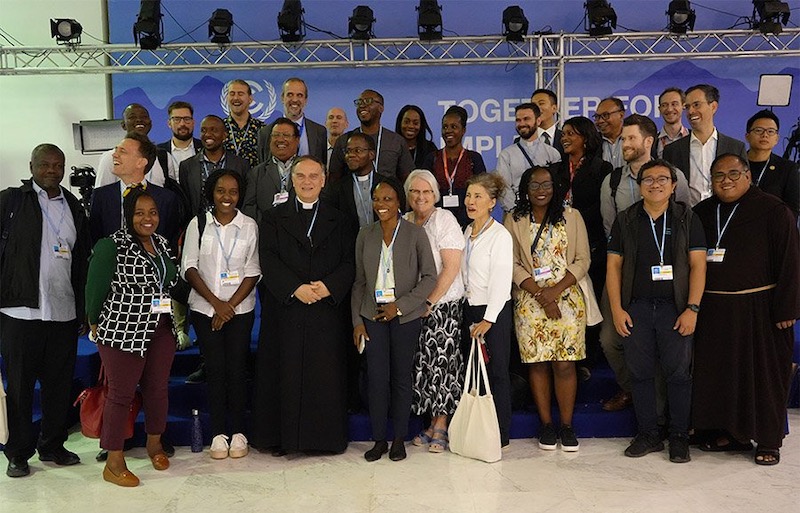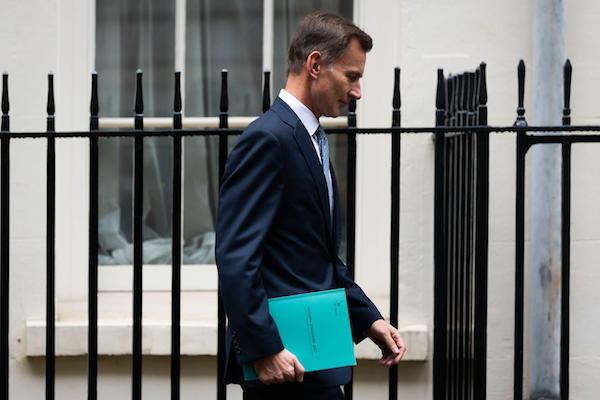Catholic organisations have joined the widespread criticism of the fiscal plans outlined in the government’s autumn statement on Thursday.
The Catholic Union said it was “far from clear that the government grasps the scale of the challenge facing people”, and called “the complete lack of reference to the homeless or refugees” in the chancellor’s statement “deeply disturbing”.
Warning of “real challenges for families up and down the country” and “difficult times”, the chancellor Jeremy Hunt announced a number of revenue-raising measures in the House of Commons on Thursday. These included freezing tax thresholds until April 2028, which will mean that many pay a higher rate of tax than they would have done otherwise.
The union’s director, Nigel Parker, said: “At a time when so many families are struggling, it is disappointing that yet another chancellor has missed the opportunity to make the tax system fairer for families.”
He added: “While times are tough at home, we know they are even tougher for many people abroad. Sadly [this] statement makes restoring the international development budget to 0.7 per cent of GDP seem like a distant prospect.”
CAFOD was also sharply critical of the failure to increase the overseas aid budget.
“These are difficult times for everyone which means difficult decisions must be made,” said the charity’s chief executive Christine Allen. “But the answer cannot be to balance the budget on the backs of the most vulnerable.
“The UK government is spending just half on aid overseas compared to their previous promises, yet the number of global crises continues to increase.”
CAFOD has calculated that the UK’s overseas aid spending has declined by almost 40 per cent since 2020, with a significant part of the budget in fact spent domestically. It found that the government is now spending £6 billion less overseas that it promised in its 2019 manifesto.
Ms Allen continued: “By spending so much of the overseas aid budget in the UK, we are just robbing Peter to pay Paul. This approach fails to tackle the root causes of global injustice – which contributes to migration – and it’s a mistake we will all pay for further down the line. The UK can and must do better.”
The charity urged the government to abolish tax relief for investment in oil and gas production, instead using the money to develop renewable energy.
The Bishop of Salford, John Arnold, said on Friday that the prime minister’s claim that the UK leads the world in its pursuit of net-zero “does not seem to be backed up by too many policies”.
He was speaking after the autumn plenary meeting of the bishops of England and Wales in Leeds this week, where the bishops issued a number of resolutions on topics including the environment and the proposal to introduce buffer zones around abortion clinics.
The bishops did not comment directly on the autumn statement, but Bishop Arnold said that the cost-of-living crisis had informed many of their discussions. He emphasised the important role of diocesan Caritas organisations and other church institutions in relieving the effects of poverty.
“In every parish,” he said, “there needs to be a sense of understanding and response.”
Bishop Nicholas Hudson, an auxiliary bishop in the Archdiocese of Westminster, said that the “new evangelisation” fostered by the synod demanded a closer engagement with the poor, visible in the food banks and voucher schemes run by many churches.
“There is an opportunity for us to ask ourselves: how do we make [these initiatives] more evangelising?” he said.
The Bishop of the Forces, Paul Mason, said that the crisis was an opportunity to foster vocations: “When the Church is seen to be working in outreach to the poorest, we shine.”
He said that Pope Francis “would have us getting out into the field hospital” of a society affected by economic crisis, and added that, regarding questions of policy, “structural injustices are more on the radar” of the Church.



 Loading ...
Loading ...